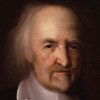“ The worship of the senses has often, and with much justice, been decried, men feeling a natural instinct of terror about passions and sensations that seem stronger than themselves, and that they are conscious of sharing with the less highly organized forms of existence. ”
Oscar Wilde, The Picture of Dorian Gray (1890). copy citation
| Author | Oscar Wilde |
|---|---|
| Source | The Picture of Dorian Gray |
| Topic | justice passion |
| Date | 1890 |
| Language | English |
| Reference | |
| Note | |
| Weblink | http://www.gutenberg.org/files/174/174-h/174-h.htm |
Context
“For, while he was but too ready to accept the position that was almost immediately offered to him on his coming of age, and found, indeed, a subtle pleasure in the thought that he might really become to the London of his own day what to imperial Neronian Rome the author of the Satyricon once had been, yet in his inmost heart he desired to be something more than a mere arbiter elegantiarum, to be consulted on the wearing of a jewel, or the knotting of a necktie, or the conduct of a cane. He sought to elaborate some new scheme of life that would have its reasoned philosophy and its ordered principles, and find in the spiritualizing of the senses its highest realization.
The worship of the senses has often, and with much justice, been decried, men feeling a natural instinct of terror about passions and sensations that seem stronger than themselves, and that they are conscious of sharing with the less highly organized forms of existence. But it appeared to Dorian Gray that the true nature of the senses had never been understood, and that they had remained savage and animal merely because the world had sought to starve them into submission or to kill them by pain, instead of aiming at making them elements of a new spirituality, of which a fine instinct for beauty was to be the dominant characteristic.”
source


